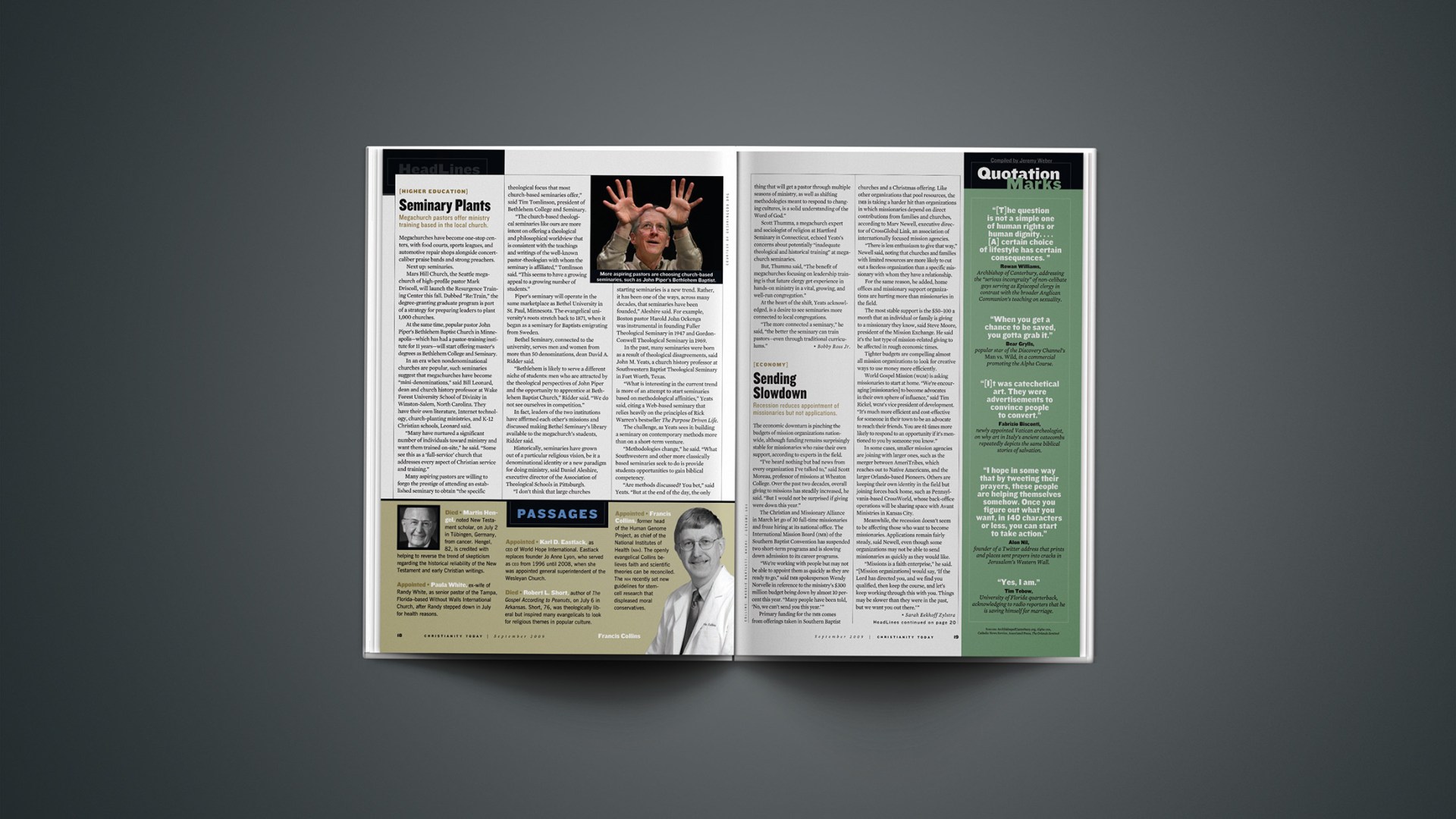The economic downturn is pinching the budgets of mission organizations nationwide, although funding remains surprisingly stable for missionaries who raise their own support, according to experts in the field.
"I've heard nothing but bad news from every organization I've talked to," said Scott Moreau, professor of missions at Wheaton College. Over the past two decades, overall giving to missions has steadily increased, he said. "But I would not be surprised if giving were down this year."
The Christian and Missionary Alliance in March let go of 30 full-time missionaries and froze hiring at its national office. The International Mission Board (IMB) of the Southern Baptist Convention has suspended two short-term programs and is slowing down admission to its career programs.
"We're working with people but may not be able to appoint them as quickly as they are ready to go," said IMB spokesperson Wendy Norvelle in reference to the ministry's $300 million budget being down by almost 10 percent this year. "Many people have been told, 'No, we can't send you this year.'"
Primary funding for the IMB comes from offerings taken in Southern Baptist churches and a Christmas offering. Like other organizations that pool resources, the IMB is taking a harder hit than organizations in which missionaries depend on direct contributions from families and churches, according to Marv Newell, executive director of CrossGlobal Link, an association of internationally focused mission agencies.
"There is less enthusiasm to give that way," Newell said, noting that churches and families with limited resources are more likely to cut out a faceless organization than a specific missionary with whom they have a relationship.
For the same reason, he added, home offices and missionary support organizations are hurting more than missionaries in the field.
The most stable support is the $50-100 a month that an individual or family is giving to a missionary they know, said Steve Moore, president of the Mission Exchange. He said it's the last type of mission-related giving to be affected in rough economic times.
Tighter budgets are compelling almost all mission organizations to look for creative ways to use money more efficiently.
World Gospel Mission (WGM) is asking missionaries to start at home. "We're encouraging [missionaries] to become advocates in their own sphere of influence," said Tim Rickel, WGM's vice president of development. "It's much more efficient and cost-effective for someone in their town to be an advocate to reach their friends. You are 61 times more likely to respond to an opportunity if it's mentioned to you by someone you know."
In some cases, smaller mission agencies are joining with larger ones, such as the merger between AmeriTribes, which reaches out to Native Americans, and the larger Orlando-based Pioneers. Others are keeping their own identity in the field but joining forces back home, such as Pennsylvania-based CrossWorld, whose back-office operations will be sharing space with Avant Ministries in Kansas City.
Meanwhile, the recession doesn't seem to be affecting those who want to become missionaries. Applications remain fairly steady, said Newell, even though some organizations may not be able to send missionaries as quickly as they would like.
"Missions is a faith enterprise," he said. "[Mission organizations] would say, 'If the Lord has directed you, and we find you qualified, then keep the course, and let's keep working through this with you. Things may be slower than they were in the past, but we want you out there.'"
Copyright © 2009 Christianity Today. Click for reprint information.
Related Elsewhere:
Christianity Today has a special section on missions & ministry and the economic recession, including:
Does Global Christianity Equal American Christianity? | Historian Mark Noll talks about how U.S. missionaries have—and have not—shaped the faith in other nations. (July 8, 2009)
You've Got Jail | Missionaries' imprisonment shows the security risks of support e-mails. (February 17, 2009)
God Is In Control During the Financial Crisis | God often uses adversity for his greatest blessings and the markets are his. (October 2, 2008)
See our news section and liveblog for more news updates.










